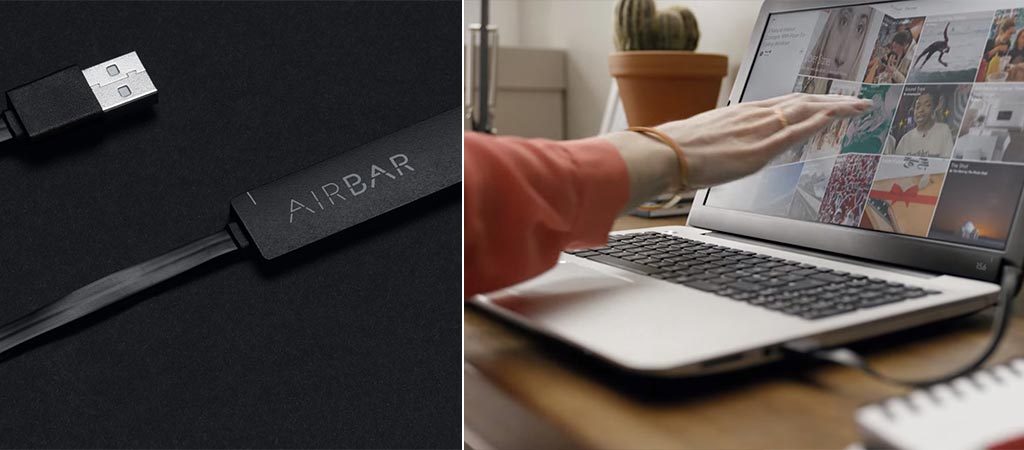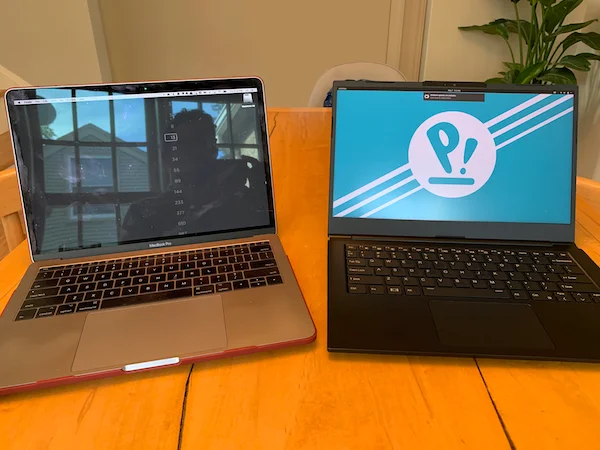 As someone who uses Linux on a laptop (ThinkPad) and would love to support a Linux-first laptop vendor, the question I've always had about System76 specifically is: what value exactly do they add?
As someone who uses Linux on a laptop (ThinkPad) and would love to support a Linux-first laptop vendor, the question I've always had about System76 specifically is: what value exactly do they add?After the System76 Driver is installed and the EFI partition has been mounted using the above commands, you can use the above instructions to update the firmware normally. Firmware Notifications for Laptops If you’re receiving the firmware update notification but there are no updates available, then your system’s Intel ME may be turned on. Operating System: Pop!OS 18.04 LTS (64-bit) or Ubuntu 18.04 LTS (64-bit) Processor: 7th Gen Intel® Core i7-7700HQ: 2.8 up to 3.8 GHz – 6 MB cache – 4 cores – 8 threads. TL;DR: System76 is a great company, with great products and great morals. Now read it damn it. My first high performace laptop was a Lenovo Thinkpad X1 Carbon. I 'owned' that laptop for about a year but only had it my possession for a few months. Drivers & Downloads. Locate drivers, user guides and product specifications for your Gateway technology. Recycle your PC, peripherals, electronics and batteries. Learn more about our environmental commitment. Get support via. I've been using System76's recently revamped Lemur laptop for more than a month now. I am happy to report that yes, it is rather nice to not ever have to think about drivers or hardware at all.
System76's pitch is that they add value by ironing out all the compatibility issues Linux can have on laptops, so they 'just work' the way macOS does on MacBooks and Windows does on ThinkPads and Dell XPSes. But they're maddeningly vague about precisely what compatibility issues they're ironing out, at least in their public-facing marketing materials.
Those make their pitch instead on the quality of their hardware -- a front where they are inevitably doomed to lose to deeper-pocketed OEMs like the ones mentioned above -- and on their coming with a custom flavor of Linux called 'Pop!_OS', which as far as I'm concerned is an anti-feature. I don't want to be locked into some hardware vendor's custom Linux ghetto just to get hardware compatibility; I want to run mainstream distros like Ubuntu, Fedora or Debian. You can get a System76 machine with Ubuntu, but if the hardware 'just works' with Ubuntu, why muddle the message by trying to get me to convert to a whole new distro? And if it doesn't 'just work' with Ubuntu, why offer that option in the first place?
It's all very confusing, and leaves me with the vague feeling that they're talking about just about anything they can talk about other than what specifically they're doing to improve Linux's compatibility with laptop hardware. And that makes me worry that they're just taking generic hardware from some Chinese factory and installing Linux on it.

If that's what I wanted, I could do it myself, you know?
Note that I'm not saying here that they aren't doing important work improving compatibility. What I'm saying is that, if they're doing that work, they're doing a really good job of hiding it from potential customers. Which is mystifying, since that is the one thing their potential customers would actually care about.
Package Details: system76-driver 20.04.24-1
Package Actions
- View PKGBUILD / View Changes
| Git Clone URL: | https://aur.archlinux.org/system76-driver.git (read-only, click to copy) |
|---|---|
| Package Base: | system76-driver |
| Description: | Universal driver for System76 computers |
| Upstream URL: | https://github.com/pop-os/system76-driver |
| Keywords: | |
| Licenses: | GPL |
| Submitter: | ava1ar |
| Maintainer: | ava1ar |
| Last Packager: | electrickite |
| Votes: | 21 |
| Popularity: | 0.93 |
| First Submitted: | 2013-08-18 05:41 |
| Last Updated: | 2021-01-18 20:51 |
Dependencies (24)
- dmidecode(dmidecode-git)
- python-gobject(python-gobject-git)
- python-systemd(python-systemd-git)
- system76-firmware-daemon(system76-firmware-daemon-git)
- python>=3.6 (python-dbg)
- firmware-manager(firmware-manager-git)(optional) – Manage System76 firmware updates
- gtk3(gtk3-donnatella, gtk3-cosy, gtk3-adwaita-3-32-git, gtk3-mushrooms, gtk3-typeahead, gtk3-git, gtk3-ubuntu, gtk3-classic, gtk3-patched-filechooser-icon-view)(optional) – To launch System76 driver and firmware GUI
- pm-utils(pm-utils-debian)(optional) – For power management features
- polkit(polkit-git, polkit-consolekit, polkit-no-script-git, polkit-duktape)(optional) – Run System76 Driver GUI from application menu
- pulseaudio(pulseaudio-bluedio, pulseaudio-pali, pulseaudio-airplay, pulseaudio-git, pulseaudio-hsphfpd, pulseaudio-dummy, pulseaudio-nosystemd-git, pulseaudio-nosystemd-minimal-git, pipewire-pulse-git, pipewire-full-pulse-git, pipewire-common-pulse-git, pipewire-pulse)(optional) – To apply microphone fix
- system76-acpi-dkms(optional) – Provides the system76_acpi in-tree driver
- system76-dkms(system76-dkms-git)(optional) – Control hotkeys and fan on certain System76 laptops
- system76-io-dkms(system76-io-dkms-git)(optional) – Enable System76 I/O daughterboard
- system76-oled(optional) – Control brightness on OLED displays
- system76-power(system76-power-git, system76-power-openrc)(optional) – System76 Power Management
- xorg-xbacklight(acpilight)(optional) – To use the backlight service
- xorg-xhost(optional) – To enable GUI applications on Wayland
Sources (4)
yochananmarqos commented on 2020-12-29 17:06
The patches should be in prepare() and and build() should look like the following. See Python package guidelines
The Cleanup should look like the following, see Python package guidelines.
Phi11ipus commented on 2020-07-16 16:33
On the System76 Lemur Pro there are audio issues when using the headphone jack. System76 support traced the problem to this package not applying the combo jack change. alsa-info.sh retrieved the following information: http://alsa-project.org/db/?f=e87fd71540d6e9e977ac9471b439a8dfa9a5ab4b.
Mange commented on 2020-04-10 07:07
Thank you! It is much clearer now!
Great that firmware-manager stopped being a requirement too! <3
electrickite commented on 2020-04-06 14:53


@Mange This is the same approach the package takes to the network manager restart script. Since the restarts/reloads are not needed by all users, the scripts are installed but not enabled by default. A note about creating the symlink is included in the package post-install message. After installing 20.04.3-1, you can run the following to enable the thunderbolt reload script:
$ sudo ln -s /usr/lib/system76-driver/system76-thunderbolt-reload /lib/systemd/system-sleep/system76-thunderbolt-reload
Mange commented on 2020-04-06 13:38
@electrickite Ah, thank you.
I expected it to be installed automatically like the other files and scripts. Will that be added?
electrickite commented on 2020-04-06 11:56
@Mange Version 20.04.3-1 includes the Thunderbolt reload script. It is installed to /usr/lib/system76-driver/system76-thunderbolt-reload and can be symlinked into /lib/systemd/system-sleep/ to activate.
Mange commented on 2020-04-05 19:29
Seems like the files from this commit needs to be added to the install procedure. The file was not installed for me and there's no reference to it in the latest PKGBUILD.
File: system76-thunderbolt-reload
Any way I can help with this?
async commented on 2020-01-16 18:36
I'm unable to install this package on Manjaro Gnome. When I try to install it, I'm not receiving any feedback.. this message just loops endlessly:
Cloning system76-driver build files...Checking system76-driver dependencies...
Cloning system76-driver build files...Checking system76-driver dependencies...
Cloning system76-driver build files...Checking system76-driver dependencies...
Cloning system76-driver build files...Checking system76-driver dependencies...
electrickite commented on 2018-08-09 01:48
Updated to version 18.04.27. @rko Thanks for the note about the patch files: they are now independent of the python version.
System76 Windows Driver
rko commented on 2018-08-08 15:03
Drivers System76 Laptops & Desktops
Arch recently updated to Python 3.7, so the patches need to be fixed. It also might be a good idea to explicitly require Python 3.7 so that the issue is caught when things are upgraded to 3.8 in the future.
